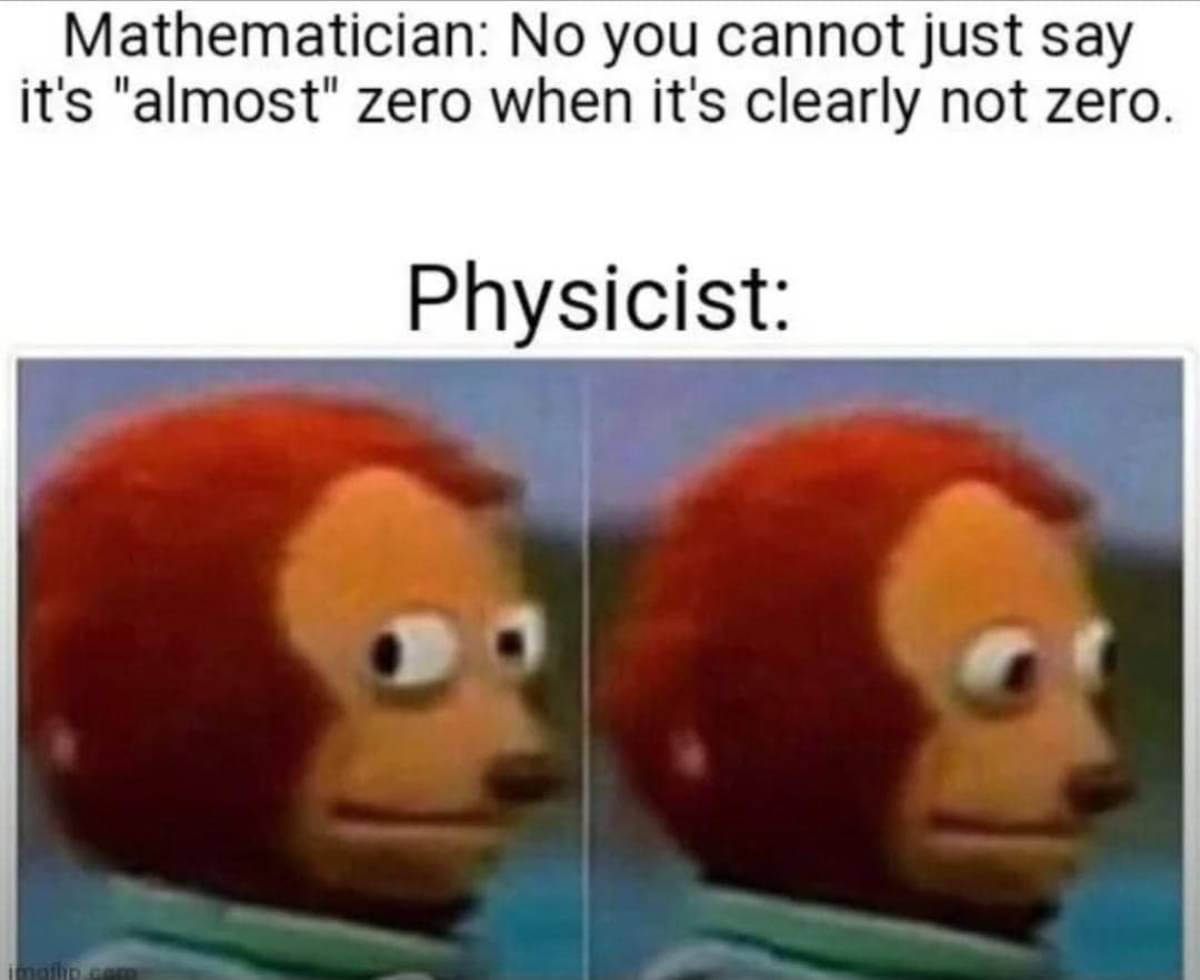this post was submitted on 18 May 2024
725 points (98.1% liked)
Science Memes
14397 readers
2440 users here now
Welcome to c/science_memes @ Mander.xyz!
A place for majestic STEMLORD peacocking, as well as memes about the realities of working in a lab.

Rules
- Don't throw mud. Behave like an intellectual and remember the human.
- Keep it rooted (on topic).
- No spam.
- Infographics welcome, get schooled.
This is a science community. We use the Dawkins definition of meme.
Research Committee
Other Mander Communities
Science and Research
Biology and Life Sciences
- [email protected]
- [email protected]
- [email protected]
- [email protected]
- [email protected]
- [email protected]
- [email protected]
- [email protected]
- [email protected]
- [email protected]
- [email protected]
- [email protected]
- [email protected]
- [email protected]
- [email protected]
- [email protected]
- [email protected]
- [email protected]
- [email protected]
- [email protected]
- [email protected]
- [email protected]
- [email protected]
- [email protected]
- !reptiles and [email protected]
Physical Sciences
- [email protected]
- [email protected]
- [email protected]
- [email protected]
- [email protected]
- [email protected]
- [email protected]
- [email protected]
- [email protected]
Humanities and Social Sciences
Practical and Applied Sciences
- !exercise-and [email protected]
- [email protected]
- !self [email protected]
- [email protected]
- [email protected]
- [email protected]
Memes
Miscellaneous
founded 2 years ago
MODERATORS
you are viewing a single comment's thread
view the rest of the comments
view the rest of the comments

What do you mean? In two's complement, there is only one zero.
IEEE 754 floating point numbers have a signed bit at the front, causing +0 and -0 to exist.
Specifically I was referring to standard float representation which permits signed zeros. However, other comments provide some interesting examples also.
floats
1- 0,99999....
Floating point numbers are not possible in two's complement, besides that, what is your point? 0,99999999... is probably the same as 1.
Yes, mathematically it's the same, but in physics there's a guy named Heisenberg who denies that 0.99999... really gets to 1. There is always this difference, for a mathematician infinite is not a problem, but for a physicist it is, plus a very big one.
True, it sounds like that might be a problem if we consider that physics has to be between math and computer science.
(Have a nice day)